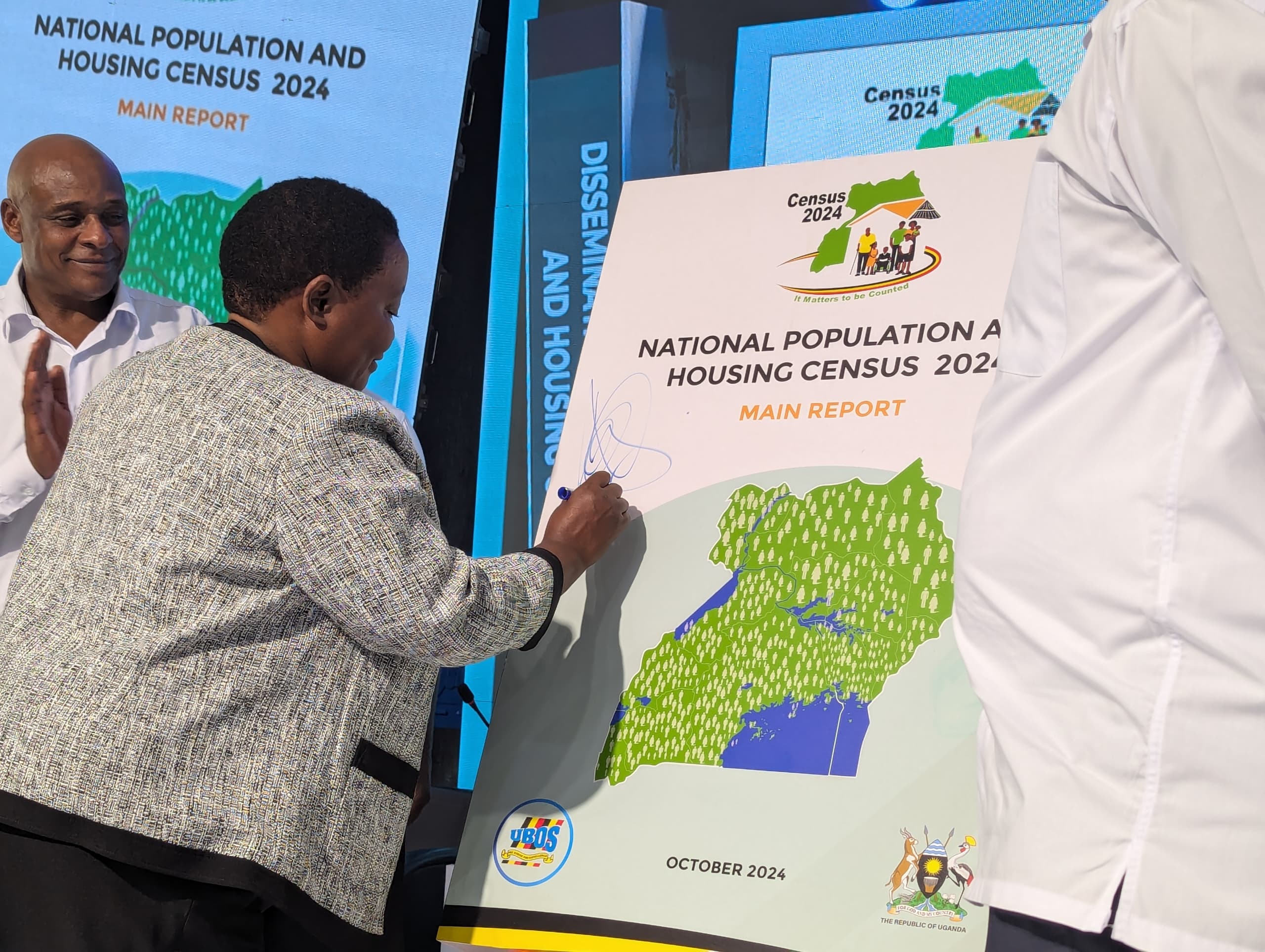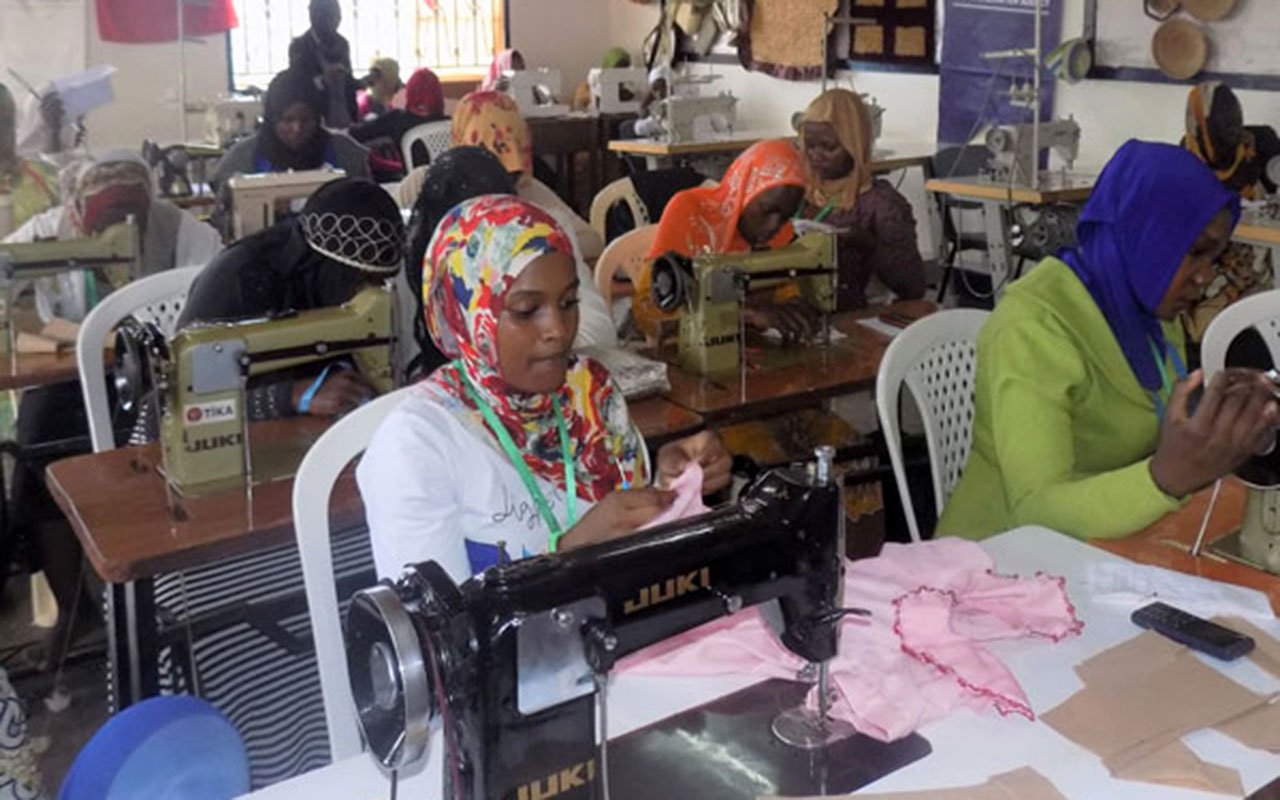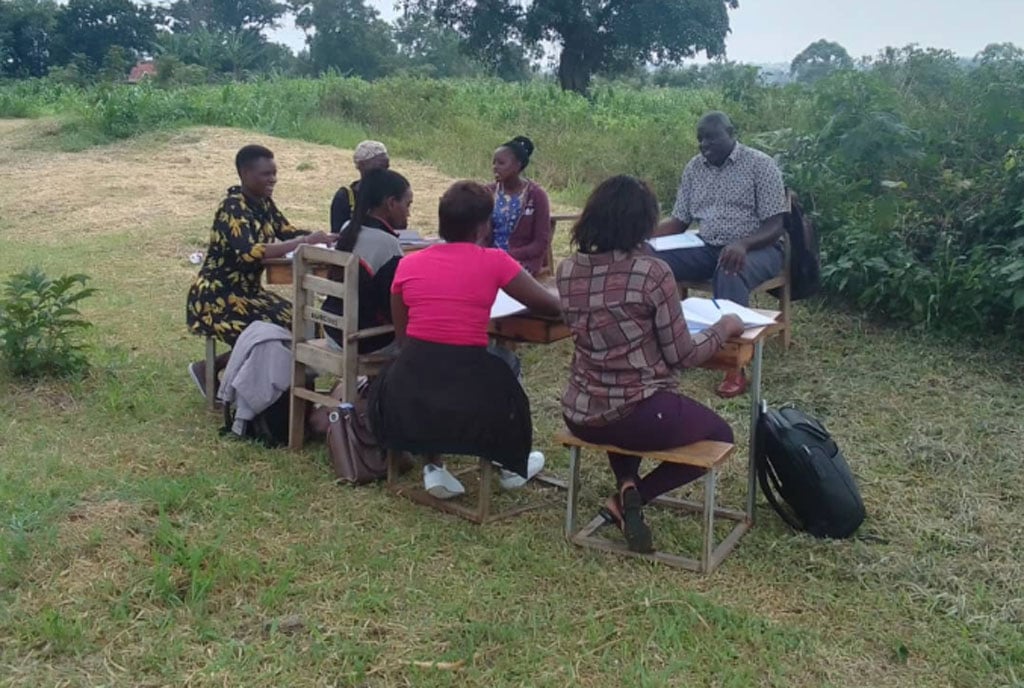Ubos withdraws census report following public concerns

Prime Minister Robinah Nabbanja launches the final National Population and Housing Census report 2024 in Kampala on October 3, 2024. PHOTO |TONNY ABET
What you need to know:
- The report sparked public debate on social media, radio and television platforms, raising questions about its authenticity and whether it could have been fiddled, or what crises could have befallen the two tribes in the last 10 years.
The Uganda National Bureau of Statistics (Ubos) has pulled down from its website the main report for the 2024 National Population and Housing Census.
The move follows public outcry over contradicting population figures released on Thursday last week that wrongly showed the population of Acholi as dropping from 2,131,443 to 1,941,913, while it displayed the Bagisu population as falling from 2,390,975 to 2,096,149.
The report sparked public debate on social media, radio and television platforms, raising questions about the authenticity of the report and whether it could have been fiddled, or what crises could have befallen the two tribes in the last 10 years.
The report showed the populations of all tribes in the country shooting upwards.
Mr Chris Mukiza, the Ubos executive director, who responded to the hot debate on his X platform, formerly Twitter, and later on Capital Gang radio talk show on Saturday, said the mix-up was a regrettable human error.
“The population figures in the census 2014 for Bakiga and Bagisu; Langi and Acholi were erroneously interchanged at the time of printing, but every tribe experienced growth over the past 10 years,” Mr Mukiza said.
The report had also indicated wrong figures for the Bakiga and the Langi in the 2014 census, showing 1,470,884 for the Bakiga, and 1,647,382 for the Langi, instead of the 2,390,446 for the Bakiga, and 2,131,495 for the Langi.
The current 2024 population for the Bakiga stands at 2,947,837, and the Langi standing at 2,703,277.
Ubos, a government agency, is mandated to ensure collection, analysis and publication of integrated, relevant, reliable and timely statistical information for the country.
Mr Vincent Senono, the Ubos principal statistician and acting deputy executive director, had on Friday, admitted to the error and said they would pull down the report to make corrections.
“It is not that we forged the report or changed it. You know when you are writing a report and there are many people, sometimes you ignore small things. So I know Ubos is going to come back to you people to officially clarify. We are removing it (report) from the website now and then upload the revised one,” Mr Senono said.
He said the error was only in the figures indicated for 2014, but those for 2024 remain accurate. This would mean that the current 2024 population figures for the Bagisu stands at 2,096,149, up from 1,647,382 in 2014, while for the Acholi stands at 1,941,913, up from 1,470,884 in 2014.
Mr Didacus Okoth, the Ubos senior public relations officer, told this publication yesterday that the main report was pulled down because of that mismatch and that the revised version would be uploaded today.
Statistics for the 2024 census indicate that the Baganda remained the dominant ethnic group with 7,037,404 million people, up from 5,555,319 million in 2014. They are followed by the Banyankore standing at 4,200,782 million, Basoga (3,703,535 million), Iteso (3,146,079 million), Bakiga (2,947,837 million) and Langi (2,703,277 million).
They are followed by the Bagisu with 2,096,149 million people, Acholi (1,941,913 million), the Lugbara at 1,230,384, the Banyoro (1,218,121 million), the Alur (1,152,858 million), the Bakonzo (1,104,462 million), the Batoro (1,005,433 million), the Bafumbira (949,860), with other tribes combining to contribute 8,934,046 million people.
Uganda’s total population stands at 45,935,046 million people.


